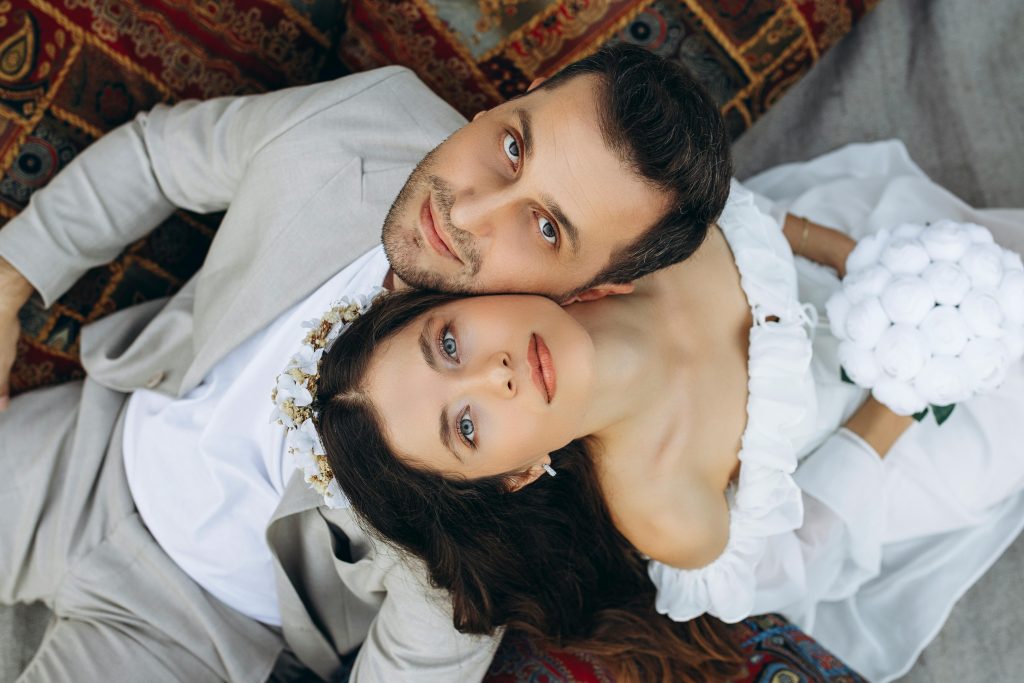In the last couple years it’s becoming harder to deny the growing influence Artificial Intelligence (AI) is having on our daily lives. We use it to supply us with the latest recipes, guide our career choices, and create better business models. A lot of us are wondering what the limitations of this massive intelligence network is, and how it will affect and change our personal lives. If you are in the wedding industry, you’re probably wondering what will change as a result of advancements in AI and how it will affect your personal or professional life.
Wedding ceremonies, steeped in tradition and emotion, are often seen as deeply human experiences. But as artificial intelligence continues to permeate every facet of our lives, it’s worth considering how it might influence these sacred events. While the idea might seem futuristic, AI’s potential to personalize, enhance, and even automate aspects of weddings is rapidly becoming a reality.

Personalized Ceremonies Beyond Imagination
AI’s ability to analyze vast a ton of data and restructure it in a way that might craft the perfect wedding ceremony script, is something that not only officiants in the industry, but blog writer’s such as myself find quite concerning. At some point, AI may be able to write a much more concise, meaningful and personlized script than even a close friend might be able to put together.
From the invocation to the wedding vows, AI will be able to imbue the ceremony with some good jokes along with the appropriate level of sincerity. AI could even help with some of the music that perfectly matches the mood and tone of each moment.
AI is almost already good enough to create readings and poems that reflect the couple’s values, beliefs, and personalities. With the right amount of prompting it can draw from the style of literature, poetry and even personal writings to craft an elegant prose.
Enhancing the Ceremony’s Logistics
Furthermore, AI could at some point in the near future become directly involved streamline the logistical aspects of wedding ceremonies:While a fully AI officiant might seem impersonal, AI could assist human officiants by providing real-time information, prompting cues, and even adjusting the ceremony’s pace based on audience engagement.
For multicultural weddings, AI could provide seamless, real-time translation of vows and readings, ensuring that everyone feels included. AI-powered apps or interfaces could allow guests to share photos, videos, and messages in real-time, creating a collaborative and engaging experience.
Although it’s hard to imagine AI being able to completely take over the photography and videography aspects it could definitely help with the editing and final production of any videos or any final production. AI could analyze and select the best shots and videos, creating a finely polished end product.
Ethical Considerations and the Human Element
Of course, the integration of AI into wedding ceremonies raises ethical considerations. One of the first concerns is how we balance the convenience and personalization of AI with the need for genuine human connection. Of course, AI is super convenient and can help a lot with providing great ideas for what elements to include and organizing them in an effective and cohesive manner. However, it is importnat to remember that there is something beautiful about the natural human element especially in wedding ceremonies.
Will AI Replace Human Wedding Officiants?
Even with it’s incredible access to data, it is still up for debate whether or not AI can truly capture the nuances of human emotion and create a meaningful ceremony. Recently there’s been some concern whether or not AI will replace human officiants, or whether it will simply serve as a tool to enhance their abilities?
Ultimately, the goal of AI in wedding ceremonies should be to enhance the human experience, not replace it. AI can be a powerful tool for personalization and efficiency, but the heart of a wedding ceremony lies in the genuine connection between the couple and their loved ones.
The Future of Wedding Ceremonies
While the idea of AI-powered weddings might seem futuristic, the technology is rapidly evolving. In the coming years, we can expect to see AI playing an increasingly significant role in creating personalized, engaging, and unforgettable wedding experiences. The key will be to find a balance between technology and human connection, ensuring that the heart of the ceremony remains firmly rooted in love and emotion.
Become Ordained to Officiate Weddings
If you, like me, are pretty sure that human wedding officiants will still play an essential role in wedding ceremonies in the future, then go ahead and get ordained online. Organizations like American Marriage Ministries (AMM) and Universal Life Church (ULC) offer online ordination for free. As long as you are at least eighteen, you can get ordained to legally be able to officiate weddings across the US. We highly recommend getting ordained with AMM. Not only does it only take a couple minutes to complete the ordination process, it’s also completely free! Once ordained, you’ll gain access to a whole library of training materials and sample wedding ceremony scripts.
Once you’re an ordained minister, you can officiate weddings for friends and family or even take your skills to the professional level. So go ahead and join the thousands of real wedding officiants keeping the wedding ceremony authentic and human!!
– Bernard Paul